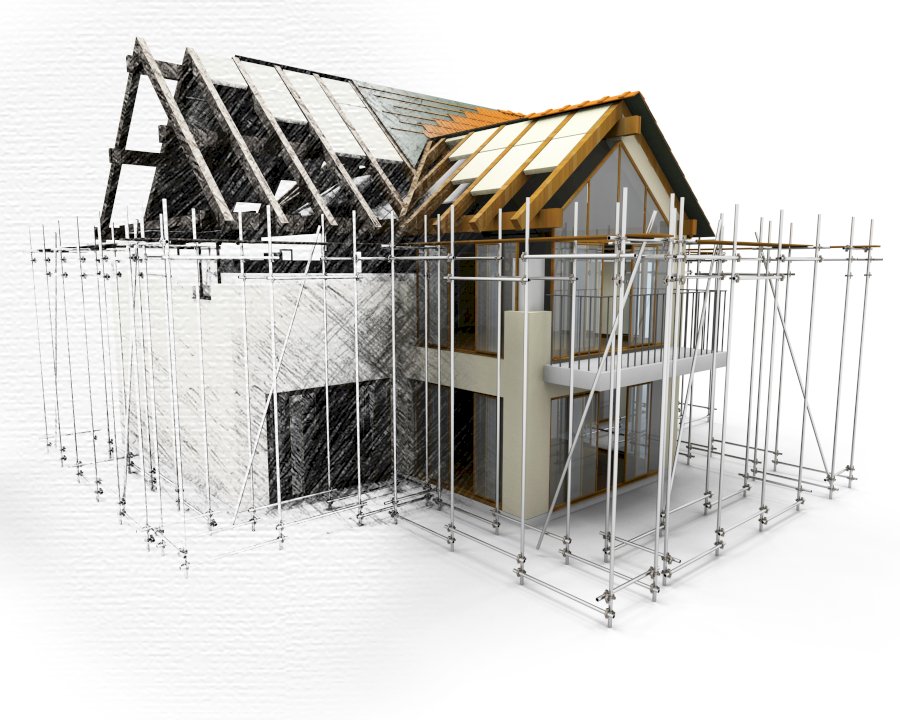
What should you pay attention to when building in Croatia? What permits do you need to obtain? Can foreigners build in Croatia? We provide answers to these and other questions below.
Construction in Croatia is regulated by various regulations, laws and standards in order to ensure safety and quality, but also to contribute to the preservation of the environment. Construction conditions refer to a set of rules and procedures that must be followed when planning and executing construction projects.
Building permit - key document for construction
One of the main conditions for building in Croatia is the possession of a valid building permit. Building permit is an official document issued by the city or municipality, which confirms that the planned building is in accordance with the applicable regulations. In order to obtain this permit, it is necessary to submit an application containing an architectural, construction and technical description of the planned building.
Spatial planning documentation and obtaining a location permit One of them is spatial planning documentation. It includes urban and spatial plans that define the purpose and conditions of construction in an area. Based on this documentation, the type of building that may be built is determined, the height, distance from neighboring buildings and so on is determined.
Obtaining a location permit is also an important condition. It is issued before the building permit and the compliance of the planned building with spatial planning documentation and with other valid regulations such as building regulations, environmental protection laws and others is checked.
Static safety and energy efficiency
Construction conditions also include regulations on the static safety of buildings. Buildings must be designed and built in a way that ensures their complete stability and safety. It is necessary to comply with construction regulations related to the application and type of materials, construction, construction of foundations, load-bearing walls, etc.
We must not forget the regulations on energy efficiency either. Croatia has regulations that prescribe minimum standards of energy efficiency for new construction, but also for the renovation of existing buildings. The goal of the regulations is to reduce energy consumption in the construction sector and encourage the use of renewable energy sources.
Construction conditions may differ depending on the type of building, its purpose, location and some other specifics. Therefore, it is essential to consult with architects, engineers and lawyers who are familiar with all regulations and can provide you with the necessary information about successful and legal construction. Proper understanding and application of conditions from the mentioned sectors are key to achieving high standards of safety, quality and sustainability.
Safety at work
Another important aspect related to construction in Croatia relates to regulations related to safety at work. The construction sector constantly carries numerous risks, therefore it is important to ensure a safe working environment for all workers. Occupational safety laws establish standards and specify requirements for the protection of workers from possible injuries or accidents on the construction site. In addition, the application of safety measures, the use of protective equipment, and training for all workers is mandatory.
Environmental protection - prevention of pollution and preservation of nature
Croatia has strict regulations regulating environmental protection during construction works. In layman's terms, there are certain measures to prevent soil, water and air pollution, as well as procedures for disposal of waste generated during construction. Designers and contractors must always take these requirements into account and ensure that construction work is carried out in a way that has minimal impact on the environment.
One of the trends in construction in Croatia is the increasing use of sustainable materials and technologies. Given the increasing awareness of environmental protection and the need for energy-efficient buildings, an increasing number of investors and designers are choosing sustainable materials such as environmentally friendly insulation materials, renewable energy sources and technologies to reduce energy consumption. These aspects are also regulated by special standards and regulations to support and ensure application in practice.
What do foreigners need to know about construction conditions in Croatia?
Foreigners planning to build in Croatia must also obtain a valid building permit. The procedure for obtaining a permit is the same for foreign and domestic investors, but foreigners should be aware of language barriers. In addition, it is possible that relevant documentation will need to be translated into Croatian.
If a foreigner builds in Croatia as a business entity, he must register the company in accordance with Croatian legislation. In this case, it is best to consult with a lawyer or business advisor in order to obtain all important information about legal and administrative procedures. It is a good idea to hire experts who will answer all questions and give advice on the further course of the construction process. It is also not a bad idea to ask the embassy for help, both with the aim of obtaining information and advice on construction conditions, necessary permits and answers to other questions.
Conclusion
It is important to note that construction conditions change over time, so we recommend following the legislation and consulting with experts. As you could read, construction conditions in Croatia encompass a wide range of regulations including building and location permits, spatial planning documentation, environmental protection and so on. Compliance with these conditions is essential for the successful and legally acceptable execution of construction projects in Croatia.